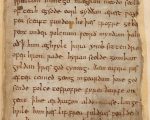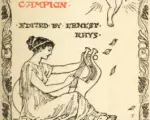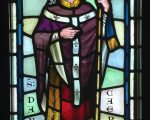On this day in history, 1st March 1620, Thomas Campion, the famous Tudor and Stuart physician, poet and musician, died. He was laid to rest on the same day he died at St Dunstan-in-the-West, Fleet Street, London.
Campion was born in 1567 and was the son of John Campion, cursitor to the chancery court, and Lucy Searle. His father died when he was nine, so he was brought up by two stepfathers. Campion was educated at Peterhouse, Cambridge, and he was admitted to Gray’s Inn, one of the four Inns of Court in London, in April 1586. His Oxford Dictionary of National Biography biographer, David Lindley, notes that Campion did not proceed to any formal qualifications at Cambridge or at Gray’s Inn, but that it was while he was at Gray’s Inn that he became involved in acting in revels and writing songs.
[Read More...]




